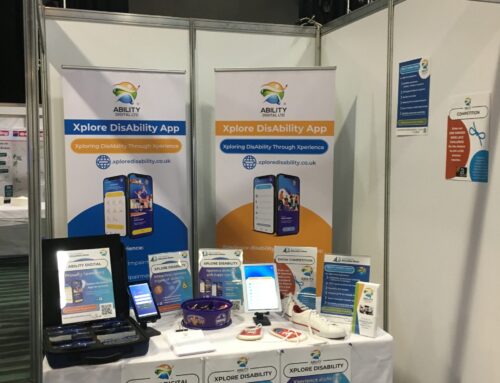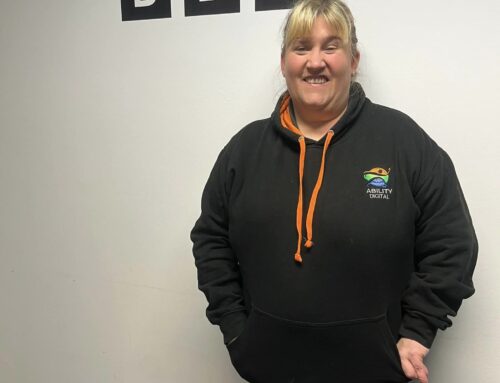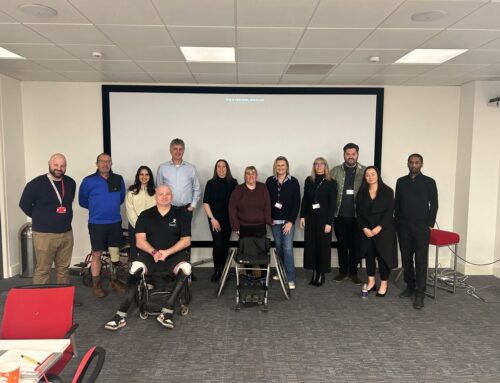The gender pay gap!

You’ve probably heard of the gender pay gap. It is the difference in pay between genders and usually shows the percentage that men earn, more than women. The gender pay gap for all employees currently stands at 14.9% according to the TUC. The gap is sadly even higher in the areas where Ability Consultancy work – within sport and education, and is a topic that goes against the equality, diversity, and inclusion lifeblood of our business.
To make this more understandable, working women must wait almost two months – before they stop working for free and start earning money – that can’t be right can it! The good news is that the gender pay gap has been declining slowly over time and it is now law for companies and charities (with over 250 staff members) to publish their gender pay gap figures.
However, the gender pay gap is not the only ‘gap’ that exists and that sends the passionate Ability Consultancy team into a rage. This blog looks at both the disability employment gap and the disability pay gap – both of which do not apply to Ability Consultancy, as we are proud that over 65% of our team are disabled and that no pay gap exists as we pay disabled people at a fair and equal rate.
Have you heard about the disability employment gap?

Our founder, Claire Buckle, (a female, former para-athlete, and disabled entrepreneur) is very much aware that people with a disability are less likely to be employed and works tirelessly to overcome the barriers for disabled people that contribute to the disability employment gap. Officially described as the difference in the employment rate of disabled people and people who are not disabled, the gap according to the House of Commons Library is 29.0%.
As Claire explains, “People with a disability are less likely to be working and for those that can and want to work, this is a real shame. Unfortunately, there are still many barriers which stop disabled people from gaining employment. These include attitudinal barriers, such as stereotyping, social barriers such as prejudice, physical barriers, and policy and communication barriers.” Our aim at Ability Consultancy is to reduce the stigma associated with disability, to bust myths and to share positive success stories.
One such success story is Ability Consultancy itself. Claire Buckle has a great inner strength to achieve and succeed and was so disappointed with her own poor experience of seeking work that she decided to take out the middleman and set up the company. This was due in part to when an employer overlooked Claire at the interview stage for a role (which she was perfectly qualified for) because of her stammer. We know being Equality Act 2010 experts, that this is in serious breach of the law. Unfortunately this is not an isolated incident and the main theme that comes through when talking to other people with disabilities is the tenacity shown by them, when unfortunately, the stigma remains that some people still think (incorrectly) that disabled people will take extra time off for sickness etc.
With now one in five people of the working-age populations classed as disabled (as stated by the government) isn’t it time that assumptions are corrected, myths are busted, and that education and awareness are embraced.

One of our neurodivergent and disabled session deliverers said
“Disabled people are likely to have more skills and abilities than most due to their need to constantly adapt, think on their feet, and achieve what people think is impossible for them.”
And a disability pay gap too!
Let’s get this right, disabled people are less likely to be in work AND they are also paid less (on average) than non-disabled people! The ‘disability pay gap’ – the gap between median pay for disabled employees and their non-disabled counterparts – was 13.8% in 2021 as documented by the Office of National Statistics, with disabled people earning almost £2 per hour less. There have been calls for businesses to publish disability pay gaps, (in a similar way to mandatory gender pay gaps) to shine a light on this inequality. Whilst not a legal requirement, some more progressive companies even publish disability pay gap reports as part of their commitment to equality, diversity, and inclusion.
The disability pay gap is a complicated issue but stems from the barriers disabled people face from an early age. Disabled people are achieving lower levels of qualifications, and this can hinder progress and promotion in a workplace. Barriers facing disabled people is a key area that is discussed in the Ability Consultancy online courses, and you can be assured that they are both enlightening and factual. For example, you will hear real life examples from Claire about the extra costs incurred by a disabled person just to try and lead their normal life. Claire, our founder has to pay in excess of £20 for a one-handed knife and fork, due to her disability and can’t just nip down to IKEA/Tesco/Asda or order the best deal off Amazon for her cutlery. With extra life expenses like this to consider, it really doesn’t seem fair when pay is reduced too.
Ability Consultancy is committed to ensuring that,
“everyone deserves the chance to live, learn and earn, whether disabled or not”.
We employ and pay the best disabled people to deliver our equality, diversity, and inclusion training sessions, in schools, the community and in workplaces. We hear many stories about other organisations using disabled people as volunteers, rather than paid employees!
What to do when seeking employment as a disabled person
Here are our top three tips for when you’re looking for work as a disabled person.
- Look out for adverts and application forms with the ‘disability confident’ symbol. It means the employer is committed to employing disabled people and you’ll be guaranteed an interview if you meet the basic conditions for the job.
- Look into Access to Work for money towards a support worker or for the cost of equipment or travelling to work.
- Value your time – Volunteering can be an amazing experience, but be mindful that genuine volunteers should not receive, nor expect to be paid, any remuneration for their work. If gainful employment is your goal, then do not allow yourself to be swept up in a volunteering role which drains your time. Use it to gain experience whilst job searching, but keep in mind the aim of paid employment and make that your priority.
If you think you would like to work for Ability Consultancy and help deliver our positive messages across the country, please do not hesitate to get in touch.
Thinking of employing disabled people in your workplace
Ability Consultancy can help you answer the three key questions.
- Why should organisations employ disabled people?
- What to consider when recruiting disabled employees?
- What support can you offer to different impairment groups?
Ability Consultancy’s Disability Awareness in the workplace online training course is uniquely written by disabled entrepreneur Claire Buckle to help support inclusive workplaces. It is available to purchase here.
#DisAbility #DisAbilityAware #DisAbilityTrainers #DisabilityConfident #DisabilityAdvocates #DisAbilityPayGap #DisAbilityEmploymentGap #GenderPayGap #SayNoToPayGaps




